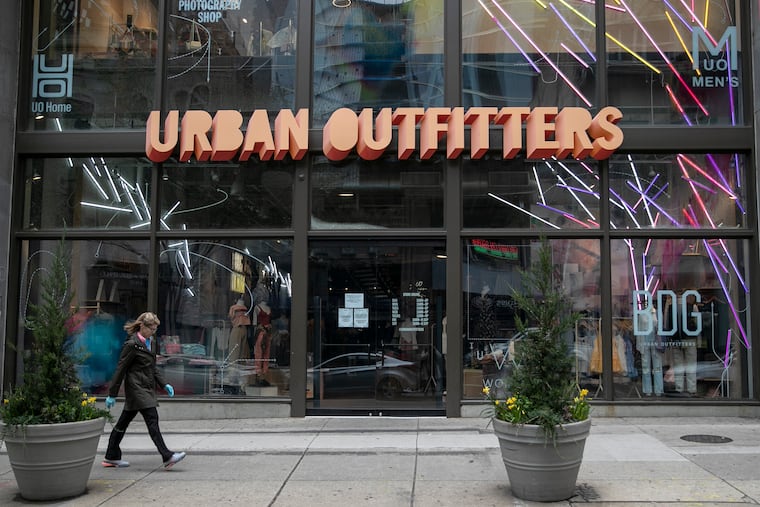Urban Outfitters shakes up executive ranks heading into the crucial holiday shopping season
Frank Conforti and chief creative officer Meg Hayne were both promoted to serve as co-president.

At an investor conference last month, Urban Outfitters executive Frank Conforti painted a picture of a holiday shopping season, styled for 2020: one that starts earlier, lasts longer, intersects with a presidential election, and, of course, the pandemic.
“You’re going to see more holiday in October and around Halloween than you’ve ever seen before, and the season itself is going to be longer,” Conforti, the Philadelphia-based retailer’s chief financial officer, said during the Goldman Sachs 27th Annual Global Retailing Conference.
But Conforti demurred from making a hard-and-fast prediction about how the lifestyle-centric business would fare in the fourth quarter. “This winter has a lot of variables in it — between the virus, between vaccine, between the election — that all, I think, are going to have an impact on the consumer one way or the other, and we’ll see how euphoric and resilient or not she is.”
Now, heading into the final stretch of a tumultuous year for retailers nationwide, Conforti’s role is expanding, along with those of five other executives, Urban announced on Tuesday.
Conforti and chief creative officer Meg Hayne were both promoted to serve as co-president. Conforti also became chief operating officer, with new responsibilities in logistics, legal, talent and human resources. He will also keep the CFO job while the company looks for a successor.
» READ MORE: Urban Outfitters faces a racial reckoning for what Black employees say is a toxic workplace
Hayne, who is married to CEO Richard Hayne, will remain as chief creative officer, while taking charge of the company’s three large brands and sourcing.
The company’s outgoing chief operating officer, Calvin Hollinger, told the company on Monday that he would resign Nov. 1, according to a securities filing. Hollinger has worked at Urban for 16 years.
“Calvin is leaving behind a strong team of very capable leaders,” Richard Hayne said in a statement. “I congratulate our six executives on their well-deserved promotions. I look forward to working closely with our entire executive team to support URBN’s future growth and strategic initiatives.”
Rounding out the slate of promotions are David Hayne, Richard’s son, who becomes chief technology officer, and Azeez Hayne, also a relative, who becomes chief administrative officer, in addition to his role as general counsel. Sheila Harrington has been promoted to chief executive officer of the Free People brand, and Hillary Super to chief executive officer of the Anthropologie group.
Urban’s sales and profits bounced back in the second quarter, which ended July 31, after the pandemic led to major drops in traffic to stores in the spring. All the company’s brands were profitable in the second quarter, Richard Hayne said during an August investors call. Urban generated $34.4 million in net income that quarter, compared with a net income loss of $138.4 million in the previous three months.
Hayne attributed the stronger performance to online sales, “exemplary” control of expenses and inventory, and “our ability to create and offer compelling products.”
In securities filings, the company said that in response to the pandemic, it had furloughed a “substantial number of store, wholesale and home office associates” through this past July 31, and that some furloughed employees were also laid off.
Urban announced plans in August to build a new distribution center in Wyandotte County, Kan, which the company said will support the growth of digital sales. Urban’s stock closed Wednesday at $23.71, down from about $29 in early January before the pandemic.